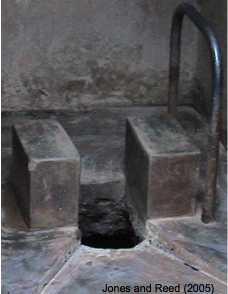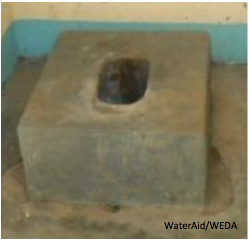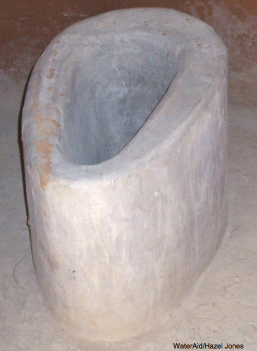Accessible - Fixed Seat Pan
| Suitable for: people who have difficulty squatting, including overweight people, pregnant women, older people and disabled people. |
| Construction | Advantages | Disadvantages | Improvements / variations | Cost / labour |
| Twin cement plastered brick sitting blocks |
|
|
|
Low |
| Brick seat with a cement screed |
|
|
|
Low to medium |
| Cement bowl made with mould |
|
|
Paint the seat to repel urine and make it easier to clean | High |



